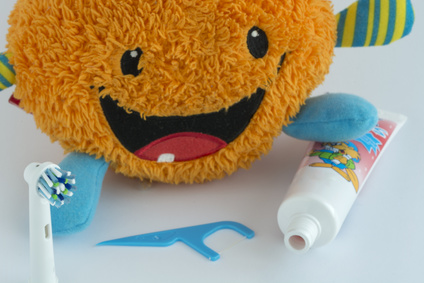Children's Dental care, Pediatric Dentist
Does My Child Really Need to Floss?
Alpharetta, GA – Alpharetta children’s dentist Dr. Nanna Ariaban gets a host of questions from the parents of her patients. One she often hears is “Why do I need to make sure my child flosses? Aren’t those baby teeth going to fall out anyway, so does it really matter?”
“As soon as your child has two teeth that touch, it’s important to begin regularly flossing them,” says Dr. Nanna. “Setting a positive oral care routine while your child is still young can go a long way in maintaining their oral health into adulthood. The primary teeth are a setting stage for the permanent teeth, and if you don’t take care of them, you can be setting your child up for a painful, and expensive future in a dental office.”
Once your child’s teeth start to fit closely together, flossing should be a standard part of their dental routine.
This typically happens between the ages of two and six, but it could be even earlier for your child.
In the beginning, it will be important for the parents to help the child floss. Flossing involves some dexterity, and it can be difficult for young children to do on their own.
“It’s been a long-held standard that around the time your child learns to write in cursive, he or she will have the manual dexterity needed to floss their teeth on their own,” says Dr. Nanna. “This is normally around the age of 10, but use your judgment as to when your child can best floss their teeth without your help.”
Flossing is crucial to any good oral hygiene routine because simple brushing simply can’t reach all of the areas of the mouth where food debris and bacteria can hide. Dr. Nanna Ariaban, the pediatric dentist in Alpharetta, sees many patients who have signs of dental decay in between their teeth from a lack of flossing.
“Your toothbrush can’t reach in between your teeth, but floss can,” says Dr. Nanna. “The cracks and crevices in the mouth are more susceptible to cavities because they’re harder for the toothbrush to reach. Regular flossing is needed to remove the plaque, bacteria, and food particles from in between your child’s teeth and to prevent cavities from setting in there.”
Early childhood caries is the number one chronic childhood illness, so it’s important that parents help their children practice good oral care routines. Tooth decay causes tooth pain, which can make it hard for children to eat and speak. And if your children’s baby teeth are lost to decay before they’re ready to fall out, that can cause issues with how their permanent teeth come in.
You take great care of your teeth because you value your smile. The same should be true of your child’s teeth, even if those teeth are eventually going to fall out. Not only can you save your child from the pain of tooth decay and save yourself the cost of future dental and orthodontic work, but you can also help your child develop healthy habits today that will carry on into their future.
© 2018 Polkadot Pediatric Dentistry. Authorization to post is granted, with the stipulation that Polkadot Pediatric Dentistry in Alpharetta, GA, is credited as the sole source.


